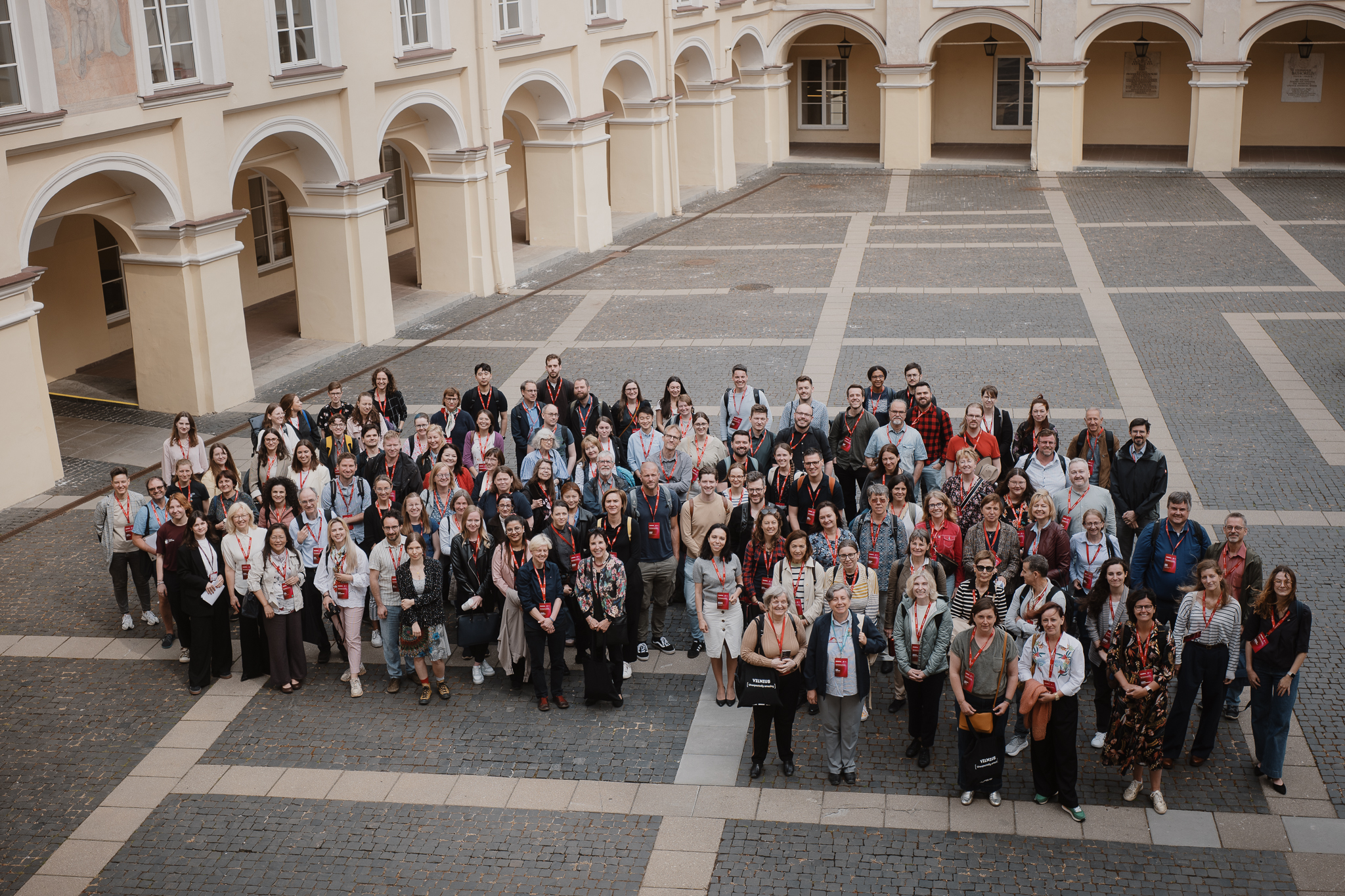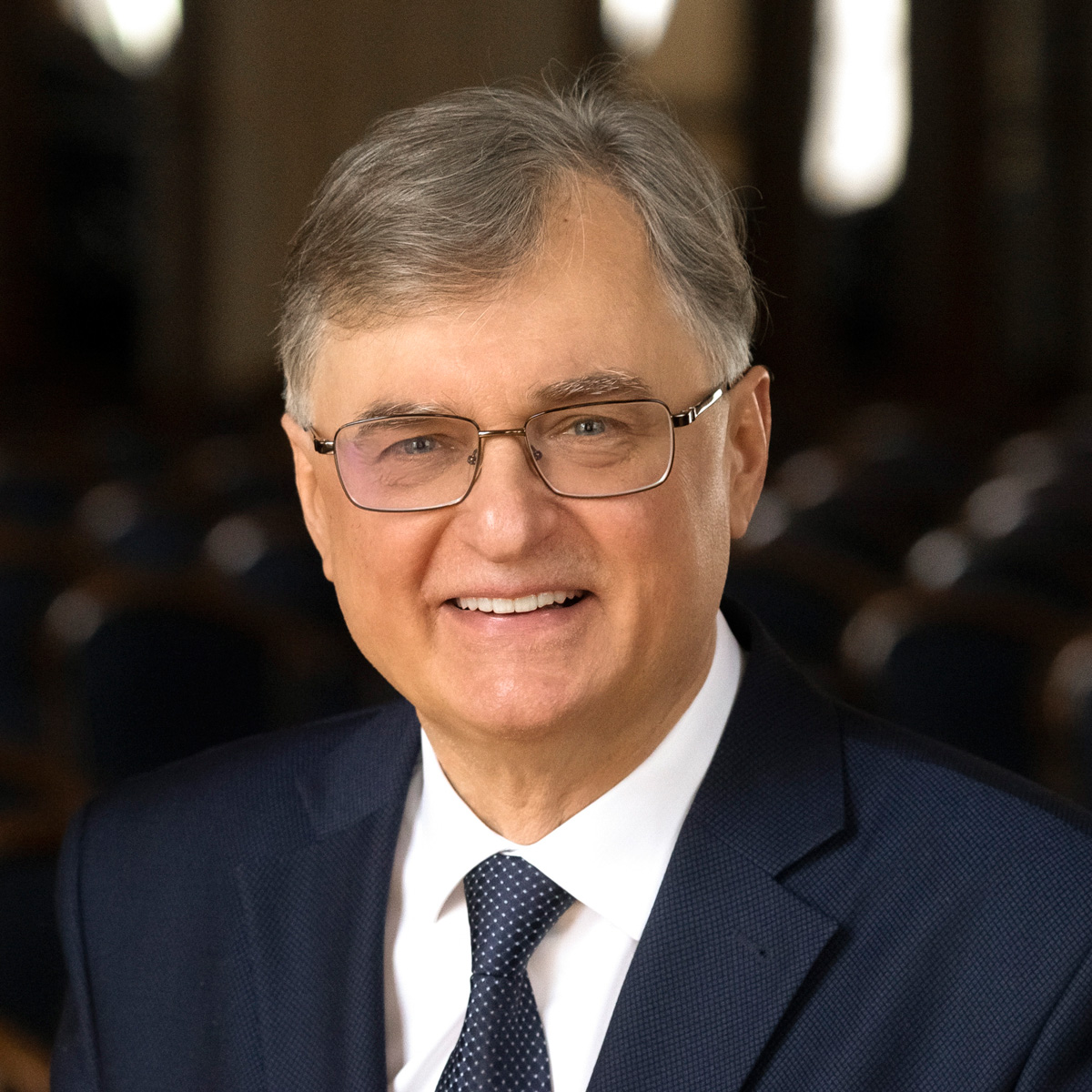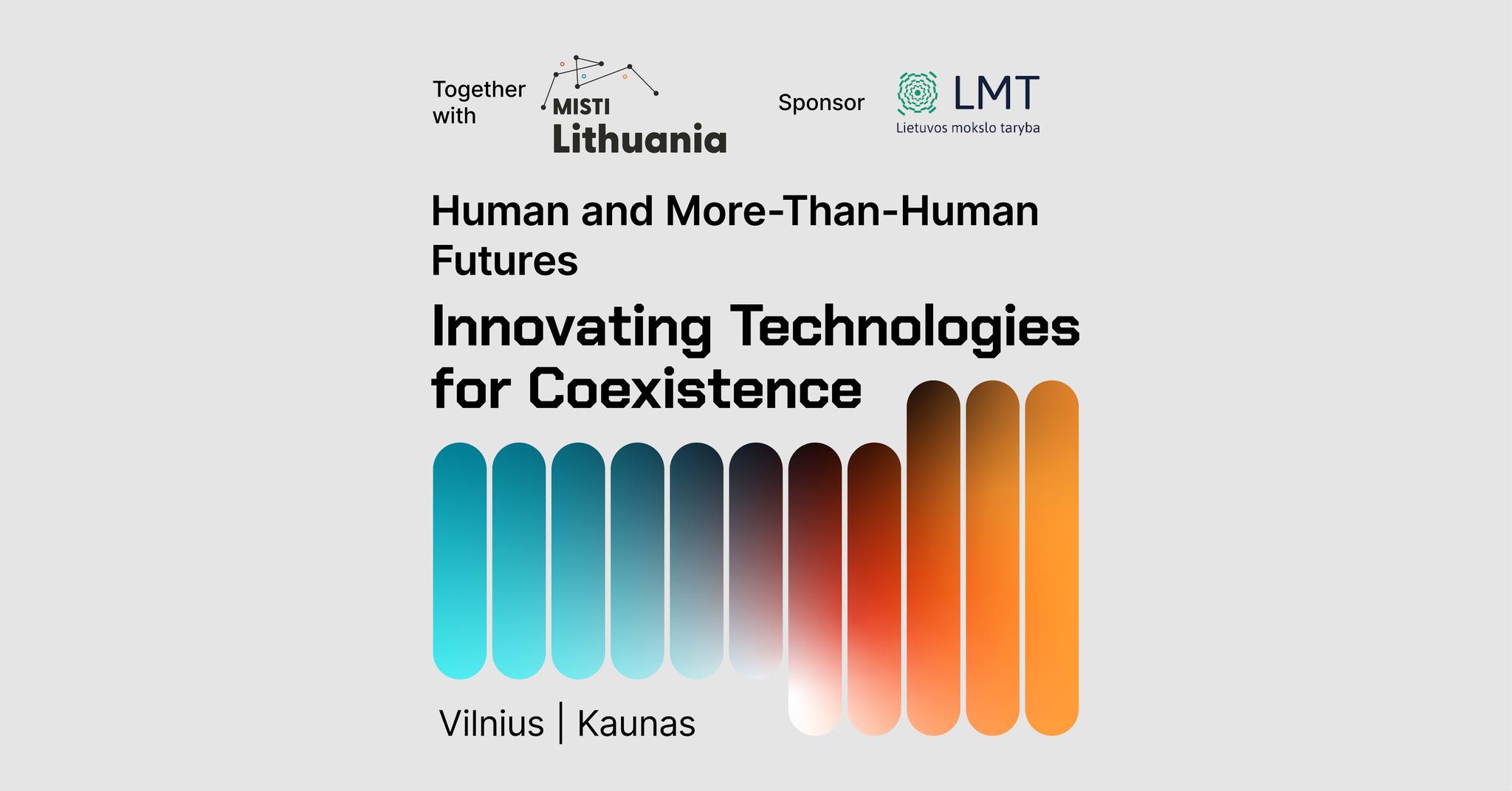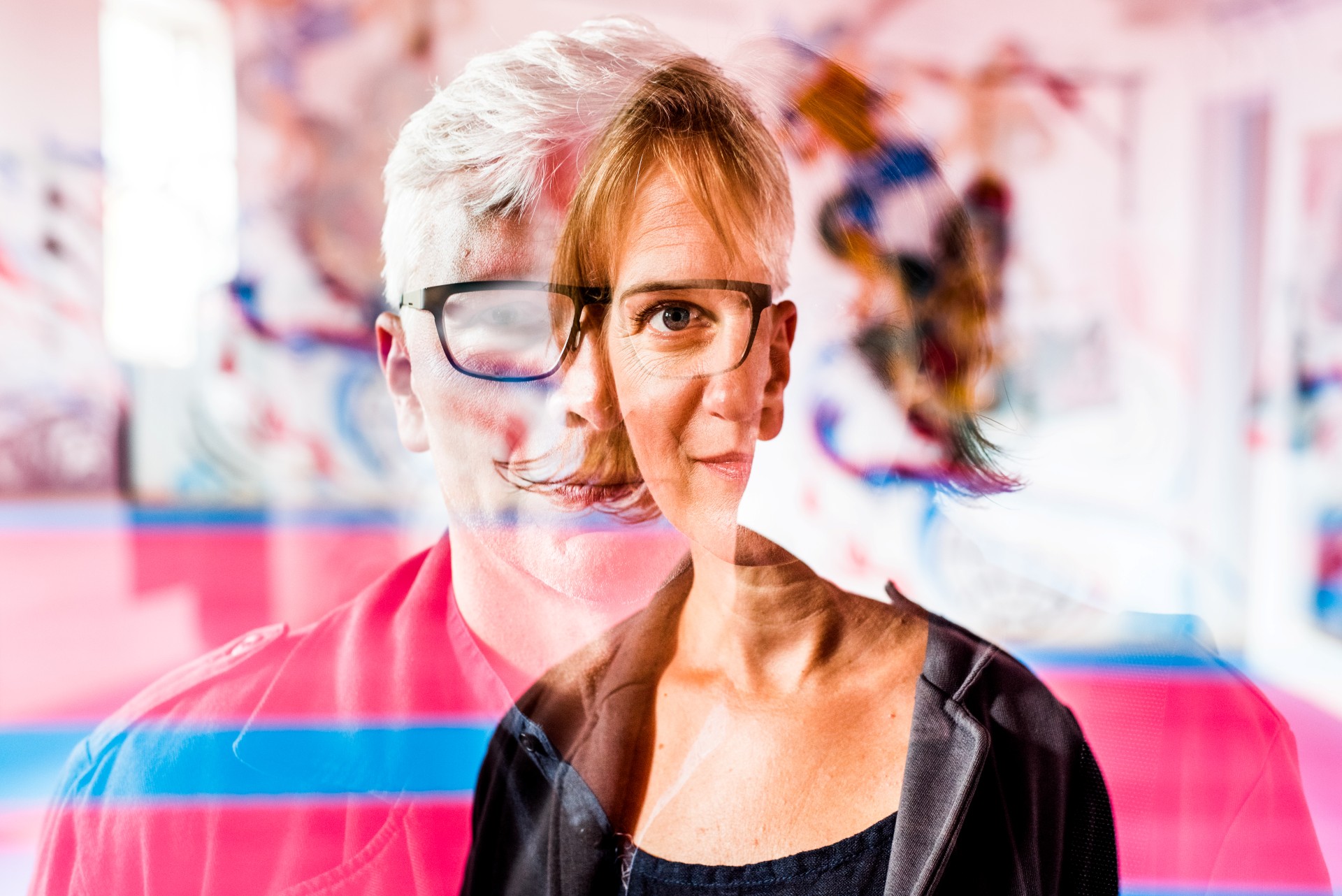October Conference to Include World-Leading Experts From Massachusetts Institute of Technology and Lithuania to Discuss Future Manufacturing, Quantum and AI Innovations
 Artificial intelligence, climate change, enhancement of Lithuania’s defense, digitalization, and livable cities – these are just a few of today’s most pressing topics both in Lithuania and globally. These topics will be explored by experts from Lithuania and the Massachusetts Institute of Technology (MIT) at a conference this autumn titled Human and More-Than-Human Futures: Innovating Technologies for Coexistence. The event will be broadcast live by Lithuanian National Radio and Television.
Artificial intelligence, climate change, enhancement of Lithuania’s defense, digitalization, and livable cities – these are just a few of today’s most pressing topics both in Lithuania and globally. These topics will be explored by experts from Lithuania and the Massachusetts Institute of Technology (MIT) at a conference this autumn titled Human and More-Than-Human Futures: Innovating Technologies for Coexistence. The event will be broadcast live by Lithuanian National Radio and Television.
The conference, which will be held on 9–10 October in Vilnius and Kaunas, is organized by the Consortium of 12 major Lithuanian universities, research centers, and companies, coordinated by Vytautas Magnus University (VMU). The event has been made possible by an agreement with MIT’s Center for International Studies and MIT International Science and Technology Initiatives (MISTI).
The conference will bring together Lithuanian and MIT scientists, as well as representatives from Lithuanian business and industry, to discuss the challenges of technological transformations. The discussions will cover today’s most relevant issues associated with quantum technologies, resilient cities, energy, biotechnology, education, and other fields.
“This conference will bring together scientists, the academic community, and leaders from politics and industry. We hope that this conference marks the beginning of a long-term partnership that will strengthen Lithuania’s research, promote innovation, and open up new spaces for our talents to collaborate with U.S. scientists”, notes Dr. Gintaras Valinčius, Chairman of the Research Council of Lithuania.

MIT is a recognized leader in science and innovation. The university is affiliated with over 100 Nobel Prize Laureates and has more than 80 MacArthur Fellows, about 20 Turing Award winners, and many other award recipients. In fiscal year 2024, MIT researchers filed over 600 new U.S. patents and formed over 20 companies using MIT intellectual property.
Focus on New Ideas
This interdisciplinary conference aims to understand complex technologies by discussing the prerequisites of justice and well-being necessary for coexistence. Participants will share knowledge and explore ways to create a better future in which people, technology, and nature coexist harmoniously. The main focus will be on new ideas for transitioning from merely “smart” technologies to systems that are sensory and self-learning. In other words, methods will be sought on how to develop technologies that not only follow commands but also adapt to humans and consider their environment, with humans still remaining the key creators and users.
The delegation from MIT will be led by Prof. Duane Boning, Vice Provost for International Activities, and include about ten faculty and researchers.
The first day of the conference, October 9th, will take place at Vilnius University. Among the speakers will be Prof. Jessika Trancik from MIT Institute for Data, Systems, and Society, and Director of the Sociotechnical Systems Research Center who analyzes innovations and technologies designed to tackle major climate and energy challenges. Her research helps determine which technologies – from electric vehicles and solar power to energy storage – are the most effective. Lithuanian presenters in the same session, which is dedicated to livable cities, will include architects Prof. Gintaras Stauskis from Vilnius Gediminas Technical University and Prof. Kęstutis Zaleckis from Vilnius Academy of Arts.
The session on the Factories of the Future — exploring the intersection of manufacturing and data science — as well as on quantum technologies and other cutting-edge innovations, will feature insights from one of the world’s leading Industry 4.0 experts: Brian W. Anthony, Director of MIT’s Smart Manufacturing Leadership Program, Associate Director of MIT.nano, and Emmy Award winner. His presentation will be complemented by Prof. Kevin P. O’Brien of MIT’s Research Laboratory of Electronics, whose work is helping to unlock the promises of the quantum revolution, accelerating the pace at which new drugs and technological solutions can be developed. The session will conclude with contributions from Prof. Gediminas Juzeliūnas, physicist at Vilnius University, and Dr. Artiom Magomedov, chemist at Kaunas University of Technology, who will share perspectives from their research.

The conference will also focus on biology and genetics, including the application of genomics to address climate change and human health issues. Speakers in the session dedicated to this subject will include MIT’s chemical engineering and biotechnology expert Prof. Hadley Sikes, biochemist Dr. Mindaugas Zaremba from Vilnius University, and Director of Lithuanian Research Centre for Agriculture and Forestry Dr. Gintaras Brazauskas. The first day will conclude with a closing discussion on the impact of innovation, societal shifts, and polarization.
Another session will focus on the future of defense, security, and resilience. Presentations will be delivered by MIT’s Gene R. Keselman, Lecturer at MIT Sloan School of Management and Managing Director of MIT's Venture Studio, Proto Ventures, and Dr. Una-May O’Reilly, MIT Computer Science and Artificial Intelligence Laboratory (CSAIL), Leader of the ALFA Group, expert on Adversarial Intelligence and the intersection of Artificial Intelligence with cybersecurity. As well as Šarūnas Grigaliūnas, cybersecurity expert from Kaunas University of Technology, and Paulius Vaitkevičius, Head of Innovations at Novian Pro.
Artificial Intelligence in Education
On October 10, when the conference moves to Vytautas Magnus University (VMU), speakers will invite participants to reflect on AI in various contexts. The first session will explore how new pedagogical methods are transforming lifelong learning: AI and other innovations in education will be examined by associate professors Dr. Aušrinė Pasvenskienė and Dr. Tomas Berkmanas from Vytautas Magnus University, Prof. Dr. Simona Ramanauskaitė from Vilnius Gediminas Technical University, and other participants.
The session on the nature of intelligence in the age of digitization will be brought underway by Prof. Andreea Bobu from the Department of Aeronautics and Astronautics and CSAIL at MIT. As the lead of Collaborative Learning and Autonomy Research Lab (CLEAR Lab), she works on the development of autonomous agents that learn to do tasks for, with, and around people. The same session will also feature presentations by Dr. Vaidotas Zemlys-Balevičius from Euromonitor International and Assoc. Prof. Jurga Bučaitė-Vilkė together with Prof. Eran Vigoda-Gadot from Vytautas Magnus University
The day’s keynote will be delivered by Dr. Drew Story, Managing Director of MIT’s Policy Lab, who guides MIT researchers through strategic policy engagement to increase the societal benefits and impact of their work.
In four group sessions, conference participants will be able to join one of the four discussion groups to address strategically important topics as well as aspirations for a longer-term and expanded collaboration between MIT and Lithuania. The discussions aim to prepare recommendations for policymakers and contribute to the bolstering of Lithuania’s strategic goals.
Agreement with a Global Leader in Science and Innovation
This event follows the signing of an agreement between the MIT Center for International Studies, MIT International Science and Technology Initiatives (MISTI), and twelve Lithuanian science and business partners earlier this year. Planned forms of cooperation currently include MIT student internships in Lithuania, Lithuanian student internships at MIT, and early-stage research grants.
It is expected that these ties could open many opportunities – participation in the MIT MISTI program will strengthen Lithuania’s reputation and visibility as an innovation and technology hub, contribute to creating high-skilled jobs, and modernize the country’s education system by introducing innovative teaching methods.
According to artist and MIT professor Gediminas Urbonas, MIT’s engagement with Lithuania connects world-class expertise with a vibrant local research culture and gives Lithuanian innovation a global stage.
“By linking MIT scholars with Lithuanian partners, we co-create knowledge, accelerate breakthroughs, and cultivate talent for the world’s hardest problems. As an artist, I see this as a shared laboratory of diverse intelligences – where science, technology, the arts, and the humanities meet as equals to shape values, deepen democratic life, and imagine practical paths toward more just and livable futures”, explains Prof. Urbonas.

A Game for Solving Ecological Challenges
During the conference, students in Lithuania will have the opportunity to try a unique tool – a game designed to develop sustainability knowledge. Internationally recognized Lithuanian artists and MIT researchers Nomeda and Gediminas Urbonas, in collaboration with French scientists, have created the role-playing game Wetland.games, aimed at fostering ecosystem awareness and promoting sustainability. Taking on various roles, the players explore the wetlands as a system of collective intelligence and look for common solutions while navigating ecological, social, and other interdependencies.
The conference Human and More-Than-Human Futures: Innovating Technologies for Coexistence is organized by the Lithuanian Consortium and supported by the Research Council of Lithuania and Northway Biotech.
Conference program
Members of the Lithuanian Consortium for collaboration with MIT: coordinator Vytautas Magnus University, Kaunas University of Technology, Klaipėda University, Vilnius University, Vilnius Gediminas Technical University, Vilnius Academy of Arts, Lithuanian Research Centre for Agriculture and Forestry, Lithuanian Energy Institute, AB Ignitis Group, LTG Group, UAB Euromonitor International – Eastern Europe, and UAB Novian.
The main informational sponsor is Lrt.lt.